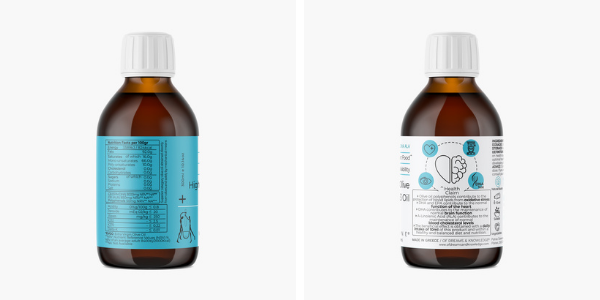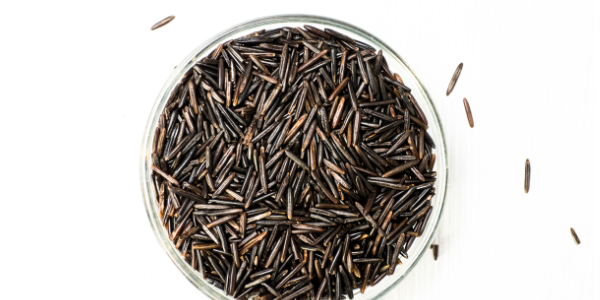Functional foods for omega 3 have been regarded as the “wonder” nutrition. Consumption (or lack thereof) of these important fatty acids has been linked to chronic diseases such as heart disease and diabetes, inflammation, and brain health. Indeed, according to a study published in Nutritional Neuroscience , omega-3 supplementation may be advantageous for Alzheimer’s disease patients at the outset of symptoms.
The good news is that you don’t have to buy supplements to get your fill; instead, add the omega-3 functional foods listed below into your diet. You may also check out our list of the greatest anti-inflammatory foods to help you fight chronic disease.
Omega-3 Amazing Health Benefits
Omega-3 fatty acids are long chains of fat that occur naturally in many of our healthiest foods. They’re considered “essential” fatty acids because the human body cannot make them naturally, so we must get them from our food. There are three forms of omega 3s: eicosapentaenoic acid (EPA), docosahexaenoic acid (DHA), and alpha-linolenic acid (ALA).
According to a review published in Lipid Technology , DHA, EPA, and DHA are all found in fish and other shellfish, however DPA is found in far lower concentrations than DHA and EPA. ALA is found in plants, plant-based oils, and animal products who feed on an ALA-rich diet. Our formula is unique; the ALA part originates from the olive tree, while the EPA + DHA components are coming from cultivated algae.
1. Reduced Inflammation
According to research, omega-3 fatty acids have a significant role in reducing inflammation. When the body breaks down omega-3s, it uses them to produce anti-inflammatory and antioxidant chemicals. As a result, it reduces inflammation and protects cells from injury . In an additional study published in the Circulation Journal , researchers examined the BMI, body fat, and weight gain of 1,053 inhabitants over the age of 40. C-reactive protein (CRP), a marker of inflammation, was measured in their blood.
BMI and body fat increased significantly when CRP levels increased in the research. “A high CRP level was shown to be substantially related to obesity.” However, omega 3 fatty acids can help to reduce inflammation. In a second European Journal of Clinical Nutrition research study , 17 healthy young adults were given a 10-week diet with less omega-6 fatty acids and more omega-3 fatty acids. Adiponectin, a beneficial protein generated by fat cells that lowers inflammation, increased dramatically after 10 weeks, whereas tumor necrosis factor, a protein involved in generating systemic inflammation, decreased significantly.
2. Reduced Hunger
In a trial of 232 overweight and obese volunteers published in the journal Appetite , researchers gave either high or low doses of omega 3s to obese and overweight subjects who were in the final two weeks of an eight-week weight-loss programme. Those who received the higher dose of omega 3s reported feeling more satiated and less hungry two hours after their meal than those who received the lower dose of omega 3s.
3. Reduced Inflammation and Increased Fat Burn
According to a 2010 study published in Nutrients , omega 3 fatty acids reduce the synthesis of cytokines—inflammation-promoting substances produced by belly fat—and increase fat metabolism through modifying the expression of inflammatory genes.
4. Improved Blood Sugar Regulation
A Brazilian study of 148 persons at risk of diabetes, published in the journal Nutrition, found that subjects with the highest ratio of omega-3s to omega-6s in their blood were more likely to improve their blood glucose levels and lower their risk of diabetes .
5. Increased Effects of Exercise on Weight Loss
Researchers at the University of South Australia randomly assigned 75 overweight persons to one of four regimens: omega 3 supplements with or without activity, omega 6 supplements with or without exercise, or no supplements at all. Over the course of 12 weeks, the group that coupled omega 3 pills with exercise lost a significant amount of weight; none of the other three groups did .
6. Improve Heart Health
Cardiovascular disease is a leading cause of death. Omega-3 fatty acids may assist enhance crucial heart health markers and lessen the risk of cardiovascular disease. However, the effect could be modest, and the evidence is inconclusive .
– Omega-3 fatty acids help by increasing “good” HDL cholesterol.
– Lower your triglyceride levels .
– Lower your blood pressure .
– May help to prevent the formation of plaques (fat, cholesterol, and calcium deposits) in the arteries.
– LDL cholesterol (the “bad” kind) may be reduced .
7. Protect Against Alzheimer’s Disease
Brain health changes and cognitive decline are common side effects of aging. Nonetheless, some studies suggest that omega-3 fatty acids may safeguard brain health as we age and reduce the chance of Alzheimer’s disease . According to one comprehensive study, omega-3 supplementation may improve cognitive function in persons with moderate Alzheimer’s disease symptoms . According to another research According to research, both EPA and DHA are equally effective at increasing DHA levels in the brain. Consuming enough levels of these nutrients is therefore critical during pregnancy, nursing, and childhood .
Do you need Omega-3 Supplements?
People have started stockpiling omega-3 capsules to acquire their daily intake as the health advantages of omega-3 have been more well known; however, researchers have shown that this may not be the most effective way to reap their health benefits.
“The greatest method to obtain more omega-3 fatty acids in your diet is through food,” Elizabeth Johnson, a Tufts University researcher who studies the function of antioxidants in eye and brain health, told NPR. So, if you’ve been paying for fish-oil tablets, consider this excellent news: You can stop taking those horse-pill-sized gel caps and start eating actual food again, with functional properties and real health benefits.
Best Vegan Food Sources of Omega-3
We’ve found some of the most functional, and tasty, ways to get the 1,100 mg of omega-3s per day suggested by the National Institutes of Health . These 5 vegan foods for omega 3 are listed in order of highest content of omega-3 fatty acids per serving to the lowest concentration of omega-3 fatty acids per serving. To compute the omega-3 content of the foods listed below, we used the USDA’s food database and totaled the ALA, DHA, EPA, and DPA for each one. Consume as much as you can and wait for the advantages to begin!
1. High Phenolic Olive + Algae Omega 3 Oil
Omega-3 content: 250 mg per 10ml (raw)
It is the most natural and highly concentrated omega-3 functional food that we are aware of. And yes, it tops our list because it has unparalleled qualities. It originates from the combination of the powerful properties of the olive tree and algae. Our formula supplies you with 250mg of the best vegan omega 3s (10ml / day), together with a set of bioactive compounds with pharmacological properties, e.g. oleacin, oleocanthal, oleuropein, elenolide, tyrosol, hydroxytyrosol. The concentration of olive oil polyphenols is among the highest in the world and always exceeds 500mg/kg. Olive oil polyphenols will certainly contribute to the reduction of your oxidative stress markers.

2. Red Lentils
Omega-3 content: 240 mg per ½ cup (raw)
Lentils are a low-cost food that weight-loss experts recommend for their potential to increase fat metabolism and manage hunger. According to the researchers, the slimming advantages are due to resistant starch, a type of slow-digesting fiber that causes the production of acetate, a chemical in the gut that tells the brain when it’s time to stop eating. According to an American Journal of Clinical Nutrition comprehensive review of clinical studies on legumes, participants who ate a daily serving of lentils (approximately 34 cup) felt 31% fuller on average compared to a control diet .

3. Mustard Seeds
Omega-3 content: 239 mg per Tbsp (ground)
One teaspoon of ground mustard has 100 milligrams of omega-3s as well as significant fat-burning capability. A teaspoon of the hot stuff was enough to accelerate metabolism by up to 25% for several hours after eating, according to researchers at England’s Oxford Polytechnic Institute. Researchers credit the weight loss effects to allyl isothiocyanates, which give mustard its distinct flavor .

4. Spinach
Omega-3 content: 166 mg per 1 cup (cooked), 41 mg per 1 cup (raw)
Spinach has only 40 calories per cooked cup and is high in vitamin E and the molecules betaine and choline, which act in concert to switch off fat storage genes. Recent research reveals that thylakoids, which are found in leaf membranes, can act as potent hunger suppressants. Participants in a three-month research who drank a breakfast smoothie containing spinach thylakoids experienced fewer cravings and lost 5.5 pounds more than the placebo group .

5. Wild Rice
Omega-3 content: 156 mg per 1 cup (cooked)
Functional nutrition adores brown rice, but it’s wild rice that has us swooning as a weight-loss wonder meal. After all, the native American grain contains nearly twice as much fiber, protein, and calories as its undoubtedly more popular relative. Whole grains have a well-established reputation as a weight-loss staple. Tufts University researchers discovered that dieters on a calorie-restricted diet who ate whole grains like rice lost considerably more belly fat than those who ingested the same number of calories from refined carbohydrates in one study. Kamut is another omega-3-rich grain.

There are many other great foods for omega 3 plant-based sources that you can reach out: Beans, Soybeans, Hemp Seeds, Chia Seeds, Flax Seeds and Walnuts among others.
Summary
Omega-3 fatty acids are necessary nutrients that can be obtained from foods or supplements. DHA, EPA, and ALA are the three kinds of omega-3s. It has been shown through research that you better choose to receive them via foods since the absorption and overall health effects are much higher as opposed to supplements. Functional foods for omega 3 fatty acids may safeguard heart health, boost cognitive performance, and reduce the risk of developing various chronic diseases.
A Word From MILESTONE®
MILESTONE® Food for your Genes uses only high-quality sources, including peer-reviewed studies, to support the facts within our articles. Read our editorial process to learn more about how we fact-check and keep our content accurate, reliable, and trustworthy.
References
